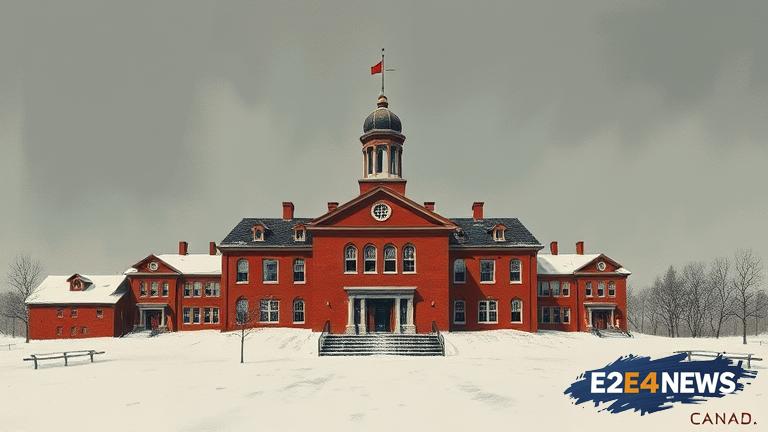The discovery of unmarked graves at former residential schools in Canada has sparked a national reckoning, with many calling for greater accountability and reconciliation. The Canadian government has faced criticism for its handling of the issue, with some arguing that it has not done enough to address the historical trauma inflicted upon Indigenous communities. The residential school system, which operated from the 1870s to the 1990s, was designed to assimilate Indigenous children into European-Canadian culture, and its legacy continues to have a profound impact on Indigenous communities today. Many survivors of the residential schools have spoken out about the physical, emotional, and sexual abuse they suffered, and the intergenerational trauma that has resulted. The Canadian government has established the Truth and Reconciliation Commission, which has made 94 recommendations for redress and reconciliation. However, many of these recommendations remain unimplemented, and Indigenous communities continue to face significant barriers to justice and equality. The discovery of unmarked graves has highlighted the need for greater transparency and accountability, and many are calling for a comprehensive investigation into the residential school system. The Canadian government has pledged to provide funding and support for Indigenous communities, but many argue that more needs to be done to address the root causes of the issue. The legacy of residential schools is a complex and deeply troubling one, and it will require a sustained and collective effort to address. The Canadian government must work in partnership with Indigenous communities to develop a comprehensive plan for reconciliation, one that prioritizes justice, equality, and healing. This plan must include concrete actions to address the historical trauma inflicted upon Indigenous communities, as well as measures to prevent similar abuses from occurring in the future. The discovery of unmarked graves has also highlighted the need for greater education and awareness about the residential school system and its legacy. Many Canadians remain unaware of the extent of the abuse and trauma inflicted upon Indigenous communities, and it is essential that this history is taught in schools and acknowledged in public discourse. Furthermore, the Canadian government must take concrete steps to address the ongoing disparities faced by Indigenous communities, including inadequate access to healthcare, education, and economic opportunities. The legacy of residential schools is a national shame, and it requires a national response. All Canadians have a role to play in reconciliation, and it is essential that we work together to build a more just and equitable society. The road to reconciliation will be long and difficult, but it is essential that we take the first steps towards healing and justice. The discovery of unmarked graves has marked a turning point in the national conversation about residential schools, and it is essential that we seize this moment to create meaningful change. The Canadian government must be held accountable for its actions, and Indigenous communities must be at the forefront of any efforts towards reconciliation. Ultimately, reconciliation will require a fundamental transformation of the relationship between Indigenous and non-Indigenous Canadians, one that prioritizes mutual respect, trust, and understanding. This transformation will not be easy, but it is essential if we are to build a more just and equitable society for all. The legacy of residential schools is a painful reminder of the darkest aspects of Canadian history, but it also presents an opportunity for growth, healing, and transformation. As Canadians, we have a responsibility to confront our past and work towards a more just and equitable future for all. The time for reconciliation is now, and it is essential that we take immediate action to address the historical trauma inflicted upon Indigenous communities.
